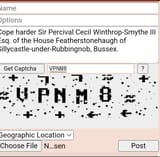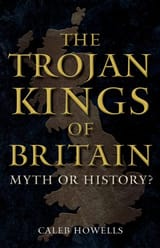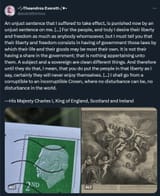>>518696725
>>518696624
https://www.britishmuseum.org/about-us/british-museum-story/contested-objects-collection/parthenon-sculptures
Thomas Bruce, 7th Earl of Elgin, obtained a controversial firman from the Ottoman authorities (who then ruled Greece) permitting him to take casts and drawings of the Parthenon sculptures. Between 1801 and 1812, his agents removed a large portion of the frieze, metopes, and pedimental figures, along with architectural fragments, and shipped them to Britain. In 1816, during the Regency, the British government purchased them from Elgin and placed them in the British Museum, where they remain, spotlighting our Trojan and Roman ancestry and institutions, which always exists in tension with the Biblical narrative, and is most scorned by Puritan-descendants.
Other Greek antiquities also arrived in Britain during this time, often through purchase or excavation, though none with the same notoriety as the Elgin Marbles. For example:
>The Phigaleia (Bassae) Marbles – Sculptures from the Temple of Apollo at Bassae (Phigaleia) in Arcadia were discovered by Charles Robert Cockerell and others in 1812. They were sold to the British Museum in 1814, during the Regency.
>Smaller collections of vases, bronzes, and inscriptions – A number of British travellers, diplomats, and antiquarians (such as Cockerell and Dodwell) brought back smaller Greek antiquities, many of which entered private collections or eventually the British Museum.
So Britons have a unique view of the Masonic-American Christophrenia.
Britannia has had several Graeco-Roman revivals from the Stuarts to the Regency.
We've had the Hanover kings from the HRE, who claim descent from Aeneas directly. And several Graeco-Roman revival periods such as the Augustan period of the Regency. With the promulgation of literature, arts linking Albion and Alba Longa (home of Roman aristocracy), architecture, plays, Greek artefacts (Elgin marbles), and more.
 10/12/2025, 8:58:40 AM
No.518689273
>>518689310
>>518691177
>>518691381
>>518691404
>>518691509
>>518691564
>>518691608
>>518691769
>>518692410
>>518692518
>>518692862
>>518692921
>>518693160
>>518693417
>>518694232
>>518694767
>>518695235
>>518695416
>>518696264
>>518696320
>>518696609
>>518696653
>>518697023
>>518698065
>>518698107
>>518701027
>>518704085
10/12/2025, 8:58:40 AM
No.518689273
>>518689310
>>518691177
>>518691381
>>518691404
>>518691509
>>518691564
>>518691608
>>518691769
>>518692410
>>518692518
>>518692862
>>518692921
>>518693160
>>518693417
>>518694232
>>518694767
>>518695235
>>518695416
>>518696264
>>518696320
>>518696609
>>518696653
>>518697023
>>518698065
>>518698107
>>518701027
>>518704085




























































